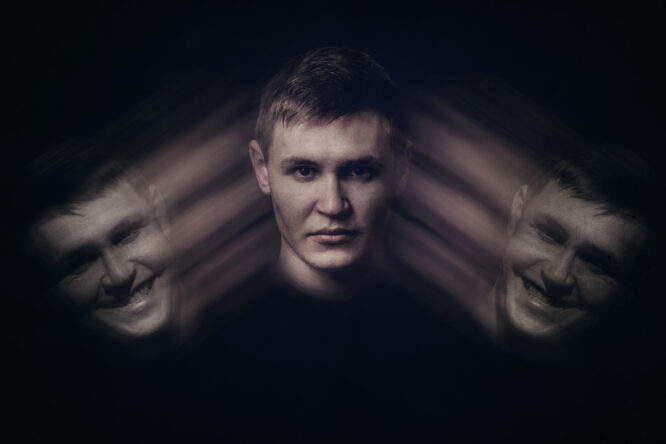Autism isn’t just about the obvious traits people hear about.

There’s a whole layer of experiences that often go unnoticed until later in life, even by those who are autistic themselves. It’s not always the awkward social moments or textbook sensory sensitivities. Sometimes, it’s smaller, stranger things that you’ve lived with for years but never questioned. These are the things that quietly shape your world in a very real way, and realising they’re part of autism can feel like finally seeing the full picture.
1. Rehearsing conversations in your head—over and over

You think through every possible version of a conversation before it happens. What you’ll say, what they might say, how to respond if they say the unexpected. It’s not always anxiety—it’s preparation. It helps create a sense of control in social situations that often feel unpredictable.
That mental rehearsal can be exhausting, but it also helps you navigate a world where social rules aren’t always clear. Once you realise it’s part of how your brain processes interaction, it makes a lot more sense why you do it so instinctively.
2. Needing recovery time after socialising, even if you enjoyed it

It’s got nothing to do with people or being antisocial. You can love your friends and still feel completely drained after a night out. That post-social crash isn’t just tiredness—it’s sensory, emotional, and mental overload all rolled into one. This is one of the most misunderstood parts of autism. Some people might wonder why you “disappear” after a good time. However, that need to reset isn’t optional—it’s survival for your nervous system.
3. Hyper-fixating on a niche interest and knowing every detail

It’s more than just being “really into something.” It’s the kind of interest that lights up your brain like a Christmas tree and makes the rest of the world feel backgrounded. You can deep-dive for hours without getting bored, and explaining it to other people feels like trying to speak another language.
These special interests are often comforting, consistent, and joy-giving. They’re a huge part of what makes autistic minds so rich—but because they’re not always “socially typical,” they can be dismissed or misunderstood.
4. Getting overwhelmed by too many choices

Standing in front of a shop shelf full of options or trying to pick from a massive restaurant menu can feel paralysing. It’s not indecisiveness, it’s overload. Your brain is trying to filter through too much at once without a clear hierarchy of what matters most. That executive function overload is often brushed off, but for autistic people, it can lead to shutdowns, stress, or needing to walk away entirely. Small decisions aren’t always small when you’re wired this way.
5. Struggling with sudden changes, even if they seem minor

When plans change at the last minute or something interrupts your routine, it can send your brain into a tailspin. It’s not about being inflexible—it’s about how much energy it takes to adapt once you’ve mentally committed to a plan. People might see this as an overreaction, but what they don’t see is the internal rewiring that’s suddenly needed. What looks like a tiny change to someone else might feel like a total derailment to you.
6. Finding eye contact either awkward or borderline painful

It’s not just about shyness—eye contact can feel too intense, distracting, or like it breaks your train of thought. Some people can manage it in short bursts, while others avoid it completely because it’s just too uncomfortable. There’s nothing wrong with looking away when you talk. For many autistic people, it’s actually easier to focus and connect when they’re not trying to maintain eye contact on top of everything else.
7. Feeling physically drained by certain environments

Busy supermarkets, loud pubs, or chaotic classrooms can leave you wiped out—like your body’s been through something, even if you didn’t do much physically. The lights, the sounds, the smells… it all stacks up fast. It’s not just being sensitive—it’s sensory overload, and it’s exhausting. Recognising this can help explain why some days feel harder than others, even if nothing “went wrong.”
8. Having intense emotional reactions you struggle to explain

Sometimes a feeling hits hard and fast, and it’s overwhelming before you even understand why. You might cry unexpectedly, snap without meaning to, or need to leave a situation immediately. It’s not that you’re overly emotional—it’s that your nervous system is processing things differently. Emotional regulation isn’t just a skill; it’s something your brain might not default to naturally.
9. Needing things to be “just right” to feel calm

This could be a certain texture of clothes, a specific routine before bed, or needing your food arranged a particular way. It’s not about being picky—it’s about needing predictability and comfort in a world that often feels chaotic. These rituals or preferences aren’t about control—they’re about safety. And when they’re dismissed or disrupted, it can feel way bigger than the small detail someone else sees.
10. Reading between the lines doesn’t always come naturally

People say one thing and mean another—and you’re supposed to just “get it.” However, if you’re autistic, that kind of vague, indirect communication can be confusing, frustrating, or totally missed. You might find yourself overthinking a single sentence or wondering if you missed a hidden meaning. Directness isn’t just a preference—it’s a necessity for clarity and comfort.
11. Certain fabrics, noises, or smells feel unbearable

Tags on clothes, the flicker of a fluorescent light, the hum of a fridge—things other people can ignore might drive you up the wall. It’s not about being fussy—it’s a full-body sensory experience that’s hard to tune out. When someone shrugs off your discomfort with “it’s not that bad,” they’re missing the point. For you, it really is that bad, and validating that can change how you approach your whole day.
12. Being misunderstood even when you say exactly what you mean

You speak clearly, but people still take it the wrong way, or say you’re being blunt or “too literal.” It’s frustrating when you’re doing your best to communicate, and it still doesn’t land the way you intended. That mismatch often comes from different communication styles, not bad intentions. However, it can still make social situations feel like minefields when your clarity gets mistaken for coldness.
13. Not knowing where you fit, even in groups that feel familiar

You might have friends, colleagues, or family around, but still feel slightly “off.” Like there’s a rhythm everyone else got handed that you didn’t. It can be a lonely, confusing feeling even when you’re surrounded by people. For many autistic people, this feeling isn’t about not belonging—it’s about not knowing how to show up in a way that fits what’s expected. Realising other people feel this too can be a huge relief.
14. Always feeling like you have to mask, even when it’s exhausting

You’ve probably spent years learning to act “normal”—copying behaviour, mimicking tone, suppressing stims—just to avoid standing out. It becomes second nature, but it takes a massive toll. Masking helps you blend in, but it also hides the parts of you that need the most support. Learning to unmask safely and slowly can feel like a breath of fresh air after a lifetime of holding it all in.




